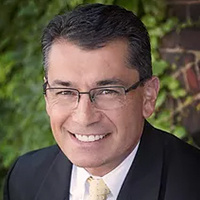Jackson County, MI Felony Lawyers
Sponsored Law Firm
-
 x
x

Click For More Info:
-
The Law Office of Thomas Piotrowski
105 Pearl St Ypsilanti, MI 48197» view mapCriminal Defense Proudly Serving Washtenaw County
You need an attorney with criminal defense knowledge who will vigorously protect your rights and interests.
800-893-2781
Not enough matches for Jackson Felony lawyer.
Below are all Jackson lawyers.
Bruce A. Inosencio
✓ VERIFIEDAccident & Injury, Car Accident, Nursing Home, Real Estate
A lifelong Jackson resident, Bruce Inosencio established his own law firm in 2000 after having worked as an associate attorney for four years at anoth... (more)
Michael S. Rosenthal
Lawsuit & Dispute, Family Law, Criminal, Personal Injury
Status: In Good Standing
Philip M. Moilanen
Estate Planning, Labor Law, Employee Rights, Contract, Wrongful Death
Status: In Good Standing
Amy Rombyer Tripp
Mass Torts, Estate Planning, Family Law, Civil Rights, Personal Injury
Status: In Good Standing Licensed: 26 Years
William M. Abbott
Labor Law, Estate Planning, Business, Limited Liability Companies, Power of Attorney
Status: In Good Standing
Brandon J. Hofmeister
Mediation, Energy, Federal Appellate Practice, Administrative Law
Status: In Good Standing Licensed: 20 Years
 Thomas Piotrowski Ypsilanti, MI
Thomas Piotrowski Ypsilanti, MI AboutThe Law Office of Thomas Piotrowski
AboutThe Law Office of Thomas Piotrowski Practice AreasExpertise
Practice AreasExpertise

